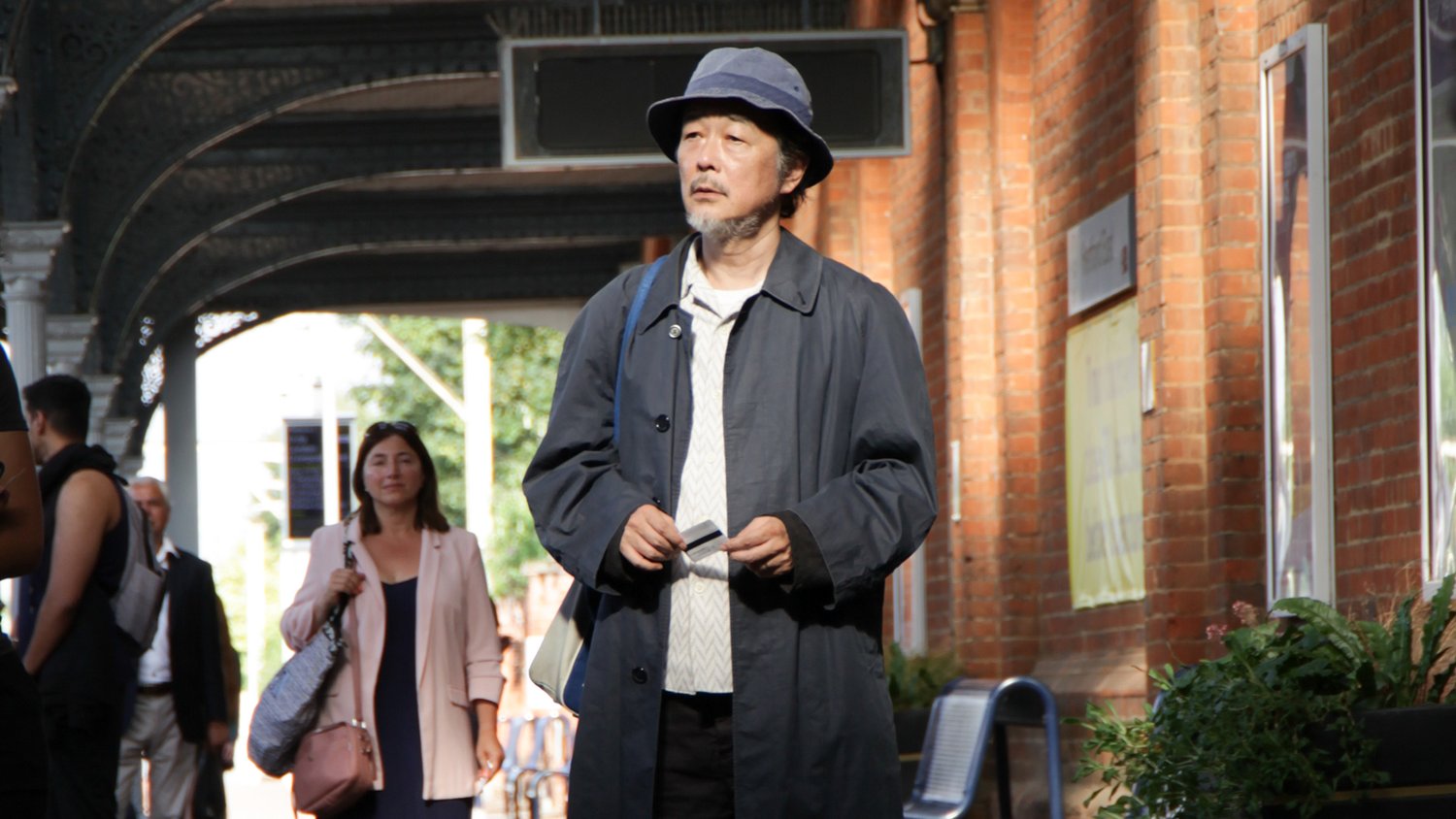Images courtesy of Level 33 Entertainment
COTTONTAIL– 4 STARS
The international journey at the center of Cottontail calls to mind the phrase “to the ends of the earth.” Originating in the 9th chapter and 10th verse of book of Zechariah in the Holy Bible, the saying spoke to the notion of dominion and defeating enemies. Nowadays, its use accentuates “a very, very long way” with some epic-sounding hyperbole. It also begs the question of what you, I, or anyone of us would go “to the ends of the earth” for. One of the most universal reasons people would is the catalyst for Patrick Dickinson’s second feature film.
In modern day Tokyo, a later middle-aged woman named Akiko Oshima (TV actress Tae Kimura) has died, succombing to a tragic illness. When she was alive, Akiko often spoke of living abroad in the 1960s with her traveling father and mother, particularly near Lake Windermere in the Cumbria county of northern England. Akiko’s parents enamored her with the classic children’s stories of Peter Rabbit written by Beatrix Potter. Two of her most cherished possessions were a small, tarnished rabbit pendant necklace (as alluded by the title of the film) she rarely removed and a family picture taken at an English lakeside when she was a small child.
When Akiko’s surviving husband Kenzaburo (Shoplifters star Lily Franky) and son Toshi (boy band singer/actor Ryo Nishikido) are overseeing her services and cremation, they are presented with a letter containing her final wishes. Rather than be interred in Japan, Akiko requested that her ashes be spread at the site of that old family photo. Her letter explains that she never had to chance to go back to England with Kenzaburo and Toshi for a vacation. She knew death would be her last, unfortunate chance.
LESSON #1: THE OBLIGATION OF FINAL WISHES– That very obligation laid at the feet of Kenzaburo and Toshi in Cottontail is precisely the kind of reason someone would travel halfway around the world or… to the ends of the earth. There’s a prideful and honorable trust of the shared human condition that comes with the duty of fulfilling final wishes, especially those anchored by strong childhood memories or held by a close family member like a parent or a child. Survivors may not, at first, understand the arduous task or the strict specifics, but they will make it happen, no matter the time, expense, or challenge.
Kenzaburo is not in a good place for a trip like this. He has been drifting in stages of alcohol-sauced grief. We are introduced to Lily Franky’s character slurring his charisma and stealing some expensive octopus from a fish market. Kenzaburo did so in order to create an anniversary meal matching the same entree at the little restaurant he met his future wife decades ago. He leaves a seat and creates a place setting for two, but it’s only him this year.
LESSON #2: LOSING THE LOVE OF YOUR LIFE– Starting with this anniversary dinner, Cottontail swirls often through Kenzaburo’s memories. Fleshing out these moments, Dikinison presents several key flashbacks of Kenzaburo and Akiko’s young courtship where they are played by Sensei! Kuchisake-onna Desu! cast member Kosei Kudo and Yuri Tsunematsu of the Burn the House Down miniseries. Both are spitting images of their grown pairs and enrapture us to their budding romance. He truly sees her everywhere. When Kenzaburo is at his lowest, other and more recent flashbacks into adulthood with Franky and Kimura in their roles show Akiko’s rapid decline of health and all of his moments of perceived failure and doubt to properly care for her. Regret and grief are a terrible, yet understandable combination of wrought emotions when one loses the love of their life.
On the other side of the family, Toshi is torn by this pending trip to the United Kingdom. He has always had a strained and distant relationship to his semi-successful and overbusy author father. His mother made him promise to take care of Kenzaburo (matching the same competing assurance she propositioned Kenzaburo about Toshi) which has him booking and managing the whole trip. Because Toshi is a married man with responsibilities to his wife Satsuki (Samurai Sentai Shinkenger TV star Rin Takanashi) and daughter Emi (Hanii Hashimoto), they end up joining the men.
Some of the pratfalls of traveling in Cottontail may be meandering and even dawdling to a degree. This includes the lucky assistance Kenzaburo receives when he takes the wrong train and finds himself lost on a bicycle in the rainy English countryside. The shivering and fraught man is taken in by a farmer and his daughter (Belfast Supporting Actor Academy Award nominee Ciaran Hinds and his real-life daughter Aoife Hinds of the recent Hellraiser remake). Once they catch wind of Kenzaburo’s desperate quest, they too know– and take on– the honor and obligation to see him on his proper way with any matter of benevolence. The Hinds family is not in Cottontail long, but their impact is enormous and memorable.
Because of the lucid callbacks to marital ups-and-downs and the pressing need for current familial healing, Cottontail is beautifully about far more than nervous foreigners venturing into an opposite landscape than their own homeland. The passionate and painful places Kenzaburo is going with his memories spill over into his conversations and actions with Toshi, turning the film into a portrait of a father and his son, as much as it was revealing the struggles of a wife and husband. Thanks to the depiction of crumbling stoicism from Lily Franky, Cottontail does not work without the warmth of his depicted anguish.
LESSON #3: THE CLOSURE OF ENSURING FINAL WISHES– With that domesticated and relatable-beyond-borders quality, Cottontail is creating a greater journey, one venturing beyond any map charting the route to Akiko’s destined lakeside. Completing one’s final wishes is a quest of closure. You are answering a soul beyond the grave to finish something they could not. Yet, that course has branching paths of unsettled grievances, corrected connection, overdue forgiveness, and fulfilled promises. All of it there to alleviate the suffering of the living and those departed. Cottontail accomplishes that heft very well.
LOGO DESIGNED BY MEENTS ILLUSTRATED (#1216)



